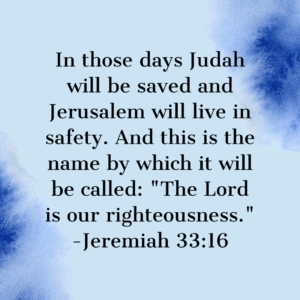St. Barnabas
ADVENT STUDY
Week One – Advent Study 2021
As the sun rose over Juba, South Sudan, Charity Toksang took another slow step toward the doors of the health care clinic, her hand on her back to relieve her pain. She had traveled throughout the night to get here, traversing roads filled with mud and water from soaking rains. But she had little choice to do otherwise.
Charity’s baby was on its way, and she only prayed that she would reach the Reconciliation Lutheran Church Primary Health Care Clinic, on the outskirts of Juba, in time.
Access to prenatal care and specialized support during labor is an ongoing challenge in this part of South Sudan. There are few clinics or hospitals, and few women have access to transportation. Getting to a clinic can mean walking many miles, and visiting a private care facility costs more than most families can afford. The Juba clinic where Charity’s son was born helps to address these challenges by providing needed care at no cost. The care center is a project of the Evangelical Lutheran Church Africa Mission in South Sudan (ELCAMSS), which is supported by ELCA World Hunger.
Charity was able to reach the clinic, and she gave birth to a healthy baby boy, much to the relief of Charity and her caregivers. Had there been complications – as Dr. John Sebit Madit Johnson, chief medical officer of the center, feared – moving Charity to a larger hospital in Juba would have been impossible.
To respond to the challenges of hunger, we must understand the real ways in which hunger impacts our lives. Images of empty plates or emaciated physical bodies were once commonly used to generate concern about hunger. But hunger takes many other forms that need to be confronted. To end hunger we must recognize the ways hunger is reflected in multiple layers of vulnerability. We must focus on the “insecurity” part of “food insecurity” as much as, if not more than, the “food” part.
For Charity Toksang, ELCAMSS’ Reconciliation Lutheran Church Primary Health Care Clinic provided a layer of assurance. Without transportation, getting to another facility would have been nearly impossible. With her husband out of work and few financial resources, the cost of care would have created a tremendous burden, one that Charity and her family would have borne for a long time.
The care center helped her to address both challenges, yet there is more to be done. Even with the care center outside Juba, Charity still faced significant risks.
If her labor had progressed too quickly…
If her delivery had been complicated…
If she had not known to seek care when she did…
Accompanying our neighbors in their struggles with hunger means entering into their stories of strength amid vulnerability and working together to end insecurity.
That’s where our faith becomes vastly important. The promise of God to which we cling is the promise that we will not only live but live well, that “Judah will be saved and Jerusalem will live in safety” (Jeremiah 33:16). This promise for the people of Judah meant an end to the precarious social and political life of their nation.
Internal and external threats were very real, and soon, Judah itself would fall to the Babylonians, who forced many Judahites into exile. Even without these political risks, the people still lived with environmental risks, such as droughts, which could cripple their farming economy and lead to widespread hunger. In fact, the entire Hebrew Bible could be summed up as God accompanying a vulnerable people through times of risk and uncertainty toward the coming of a new day.
That is part of our invitation as the church today, to accompany and be accompanied by our neighbors as we work to end the risks that come from too little food, too little money, too few clinics and too many obstacles to meaningful change. This invitation draws the ELCA and the ELCAMSS together to walk with neighbors such as Charity toward a future when her community and all communities can access the care they need to thrive.
Charity’s walk to the clinic, in some ways, mirrors our journey during Advent. In these weeks, we walk with another expectant couple, Mary and Joseph, as they travel toward Bethlehem, eagerly awaiting the birth of Jesus and praying to find shelter before he arrives. We walk, too, with the whole of God’s people through history, in hopeful expectation of the salvation God has promised. For some, that means the brightness of a day that dawns in hope. For others, it means a welcome night of rest from their labors. For all, it means that God is with us, drawing us toward a future when we “will be saved and … live in safety.”
As Charity cradled her healthy infant son, her smile and the ululations of her neighbors reflected their relief, hope and joy. Her efforts to reach the clinic had ensured that she and her baby would be safe. And, as Dr. Johnson notes, “Charity’s story is just one among the many stories of women who got the chance to access health services for the first time due to the presence of the Reconciliation Lutheran Church primary health care unit.”
Fittingly, Charity named her newborn son Emmanuel.
Questions for Reflection:
As this year draws to a close, what are your hopes for the future?
In moments of uncertainty or fear, how have you been accompanied by God through other people?
What realities create vulnerability in our communities today? How can the church help journey with people toward safety and security?
What does it mean today to “be saved and … live in safety”?
PRAYER
Protector God, you journeyed with your people Israel in their flight from Egypt, providing food, water and shelter when they were needed. You guided Mary and Joseph to the stable and led the holy family to safety from Herod’s violence. Be with us today as we face uncertainty, fear and risks both known and unknown. Comfort
us, protect us and inspire us with hope for the future you have promised. Equip us to care for one another and all our neighbors, that all may know the joy of life abundant. In your holy name, we pray.
Amen.
This study guide series authored and brought to us by ELCA World Hunger
